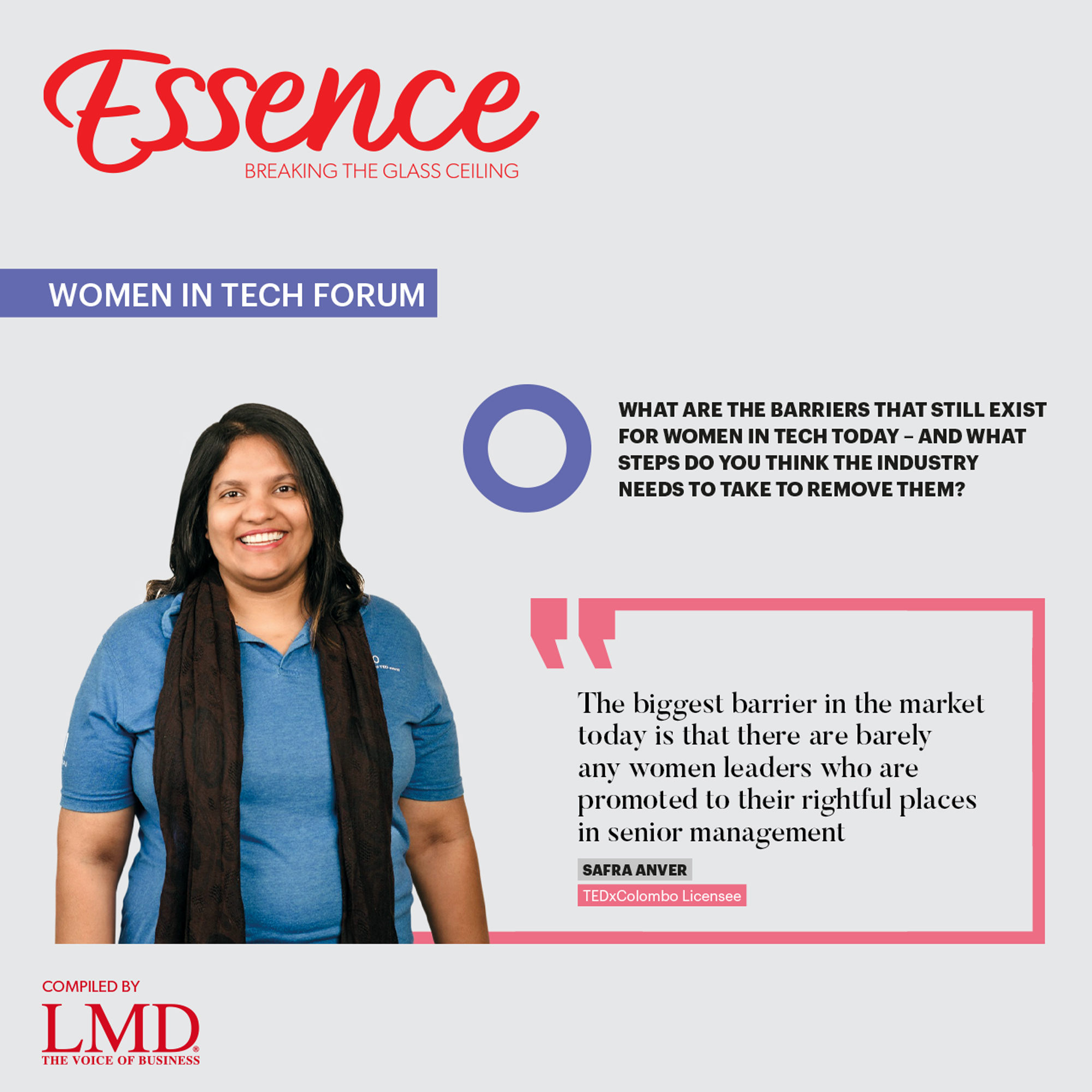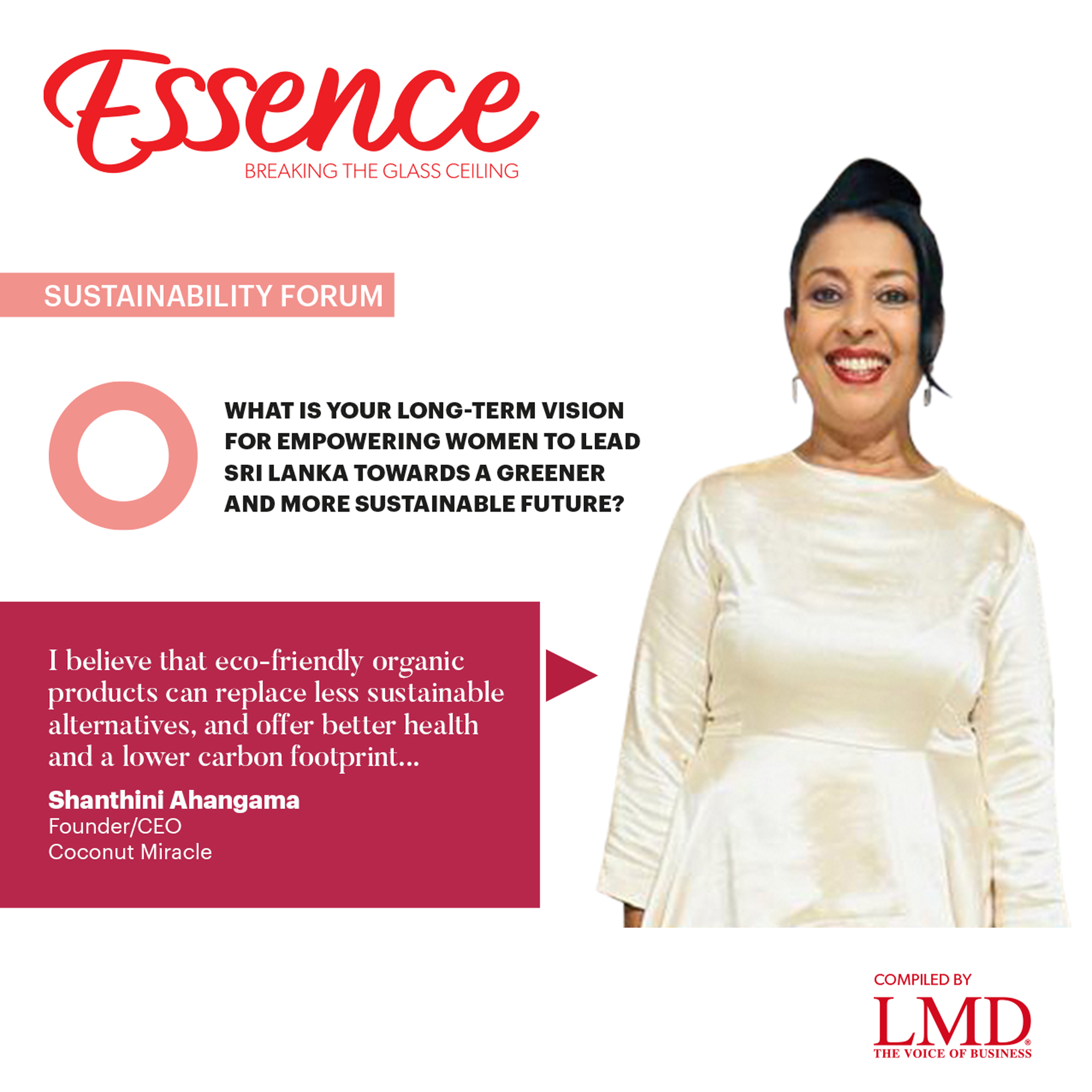TEEJAY LANKA
 Q: The apparel industry mostly employs females on the shop floor but is there corresponding representation at senior levels?
Q: The apparel industry mostly employs females on the shop floor but is there corresponding representation at senior levels?
A: Globally, the representation of women at senior levels is 24 percent so it’s clear that gender bias persists across industries coupled with a lack of equal opportunities.
However, with changes in workplace dynamics and new thought leadership, I believe the trend is shifting in many sectors. In Sri Lanka, many corporates are taking initiatives to empower women and increase their footprint at senior levels.
The apparel industry employs 300,000 people directly and 600,000 indirectly with females accounting for over 75 percent. But with greater automation reducing operational cadre in the near future, women will be encouraged to seek different roles in design, fashion and so on.
Many large and progressive apparel companies are driving initiatives to recruit more women at all levels, create conducive work environments by implementing anti-sexual harassment codes, and ensure training and development.
Q: Are women supported to maximise their potential?
A: Traditionally, there have been some challenges. But there’s more encouragement in terms of including women in the workforce so that they can contribute to the economy.
Yet, much more needs to be done. In Sri Lanka, the ratio of women to men is 57:43 but only 33 percent are represented in the workforce.
Mentorship will help; in the case of challenging assignments, mentoring, coaching or any feedback sessions are welcome – more so as you climb the ladder.
Q: Why should women be assertive in the workplace?
A: It’s important not only for women but any employee to be assertive when the occasion demands it.
Women need to develop self-esteem and self-respect; they should be confident about what they bring to the workplace – viz. skills, endurance, multitasking, compassion and emotional intelligence. Once women understand their strengths and weaknesses, they should learn to play to their strengths.
Q: How can the loss of women employees at mid-career be addressed?
A: This is an inevitable choice that women face, which is why there is stagnation at almost all levels in female employment globally. At a certain stage, personal responsibilities become obstacles to their careers and they’re faced with choices.
Businesses must understand women’s challenges, and devise programmes that offer flexibility and supportive systems, to encourage working from home (WFH) and so on to retain this valuable talent.
Q: What is your vision for Sri Lankan businesswomen?
A: My vision is for them to be able to fulfil their potential, and be represented in the C-suite and active members of leading companies.
We need to develop women’s entrepreneurial skills as this provides them and their families with economic stability. Young girls should be encouraged to pursue higher education and develop their careers or these skills – many businesses launched by Sri Lankan businesswomen have been successful and are flourishing.
Samadhi Weerakoon
General Manager
European Business
Corporate Communication & CSR
Telephone 036 4279500
Email info@teejay.com
Website www.teejay.com





